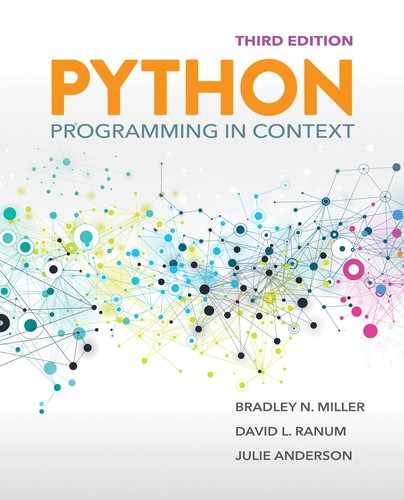1.3 Why Study Computer Science?
Now that you have a better idea of what computer science is, you may be wondering why you should learn any more about it. Our belief is that computer science is for everyone. Some of the biggest computer success stories involve people who were not even computer scientists by training, but rather came to computer science later in their careers because they had an interesting problem to solve. For example, a physicist by the name of Sir Tim Berners-Lee at the European Council for Nuclear Research (CERN) needed a better way for physicists around the world to share information. The solution to this information-sharing problem became what is today called the World Wide Web. Berners-Lee wrote the computer programs for the first web server and browser. Today he is director of the World Wide Web Consortium. In 2016, Berners-Lee was awarded the Association of Computing Machinery’s A. M. (Alan M.) Turing Prize, often referred to as the computing equivalent to the Nobel Prize.
1.3.1 Everyday Applications of Computer Science
Even if you know you want to be a computer scientist, the fact is that few computer scientists work on problems limited to computers, such as building a better operating system or improving a local area network. Instead, most computer scientists work with people, writing programs that solve problems in areas such as biology, chemistry, business, economics, publishing, automotive design, or entertainment. Look around you and think about the computer applications you use many times each day—from your browser to an instant messaging program and emails, from word processing to your fitness program, and from your personal calendar to games.
In addition to our laptop computers, tablets, and cell phones, we use computers daily that we may not even realize are computers. For example, the computers in your car check your gas mileage several times every second; examine the wear on your brake pads; monitor your speed and emissions; and update your Global Positioning System (GPS) display to keep track of your exact position and plot it on a map on the dashboard display. More and more appliances have computer-aided functions.
If you go to the doctor and need medical imaging such as a computed axial tomography (CAT) scan or magnetic resonance imaging (MRI), you are relying on sophisticated computer programs to create and interpret the images of your body. If you peek into the cockpit of a newer airplane, you will see that the entire cockpit is nothing more than a bunch of displays with virtual switches on them. In addition, the pilot of the airplane has spent many hours training in a simulated environment controlled by a computer.
Some computer programs run behind the scenes to make the world a more orderly place to live. As a student, you probably know that a computer keeps track of your credit at the cafeteria, your grade-point average, and the amount of money you owe the college this month. The computers in the library keep track of which books the library owns, who has books checked out, and when they are due back in the library.
An important development in computer science is machine learning. In this emerging area, a computer program is fed lots of data showing both correct and incorrect results, and the program uses sophisticated algorithms to “learn” to distinguish the correct results from the incorrect results. For example, some companies, including Intel and Verily Life Sciences, are using machine learning to help diagnose diseases.
In fact, you would be hard-pressed to name an area of your life that is not assisted by computers.
1.3.2 Why Computer Science Is Important
In one sense, studying computer science is important because it gives you a better understanding of how the technological world around you works. After reading this text, you may have a new appreciation for the applications that you use every day. Perhaps you will even aspire to write your own new application or an improved version of some existing application.
In another sense, computer science helps to prepare you for your future. Many of the most interesting jobs in the twenty-first century will be at the intersection of computer science and some other domain. Speaking at the Microsoft Research Faculty summit, Bill Gates made this observation: “The nature of these jobs is not just closing the door and coding. The greatest missing skill is somebody who’s good at understanding engineering and bridges that to working with customers and marketing.” A manager at a successful software company said, “I sometimes turn away applicants who have perfect scores on the standardized tests.” These applicants may be technically perfect, he explained, but they lack the ability to communicate with people and solve real-world problems.
Most importantly, a first course in computer science will help you in the following ways:
▶ You will be able to apply new problem-solving skills.
▶ You will learn to apply logic.
▶ You will learn about process (a series of actions or steps taken to achieve a specific outcome).
▶ You will understand and apply abstraction.
▶ You will learn to think and communicate more clearly.
